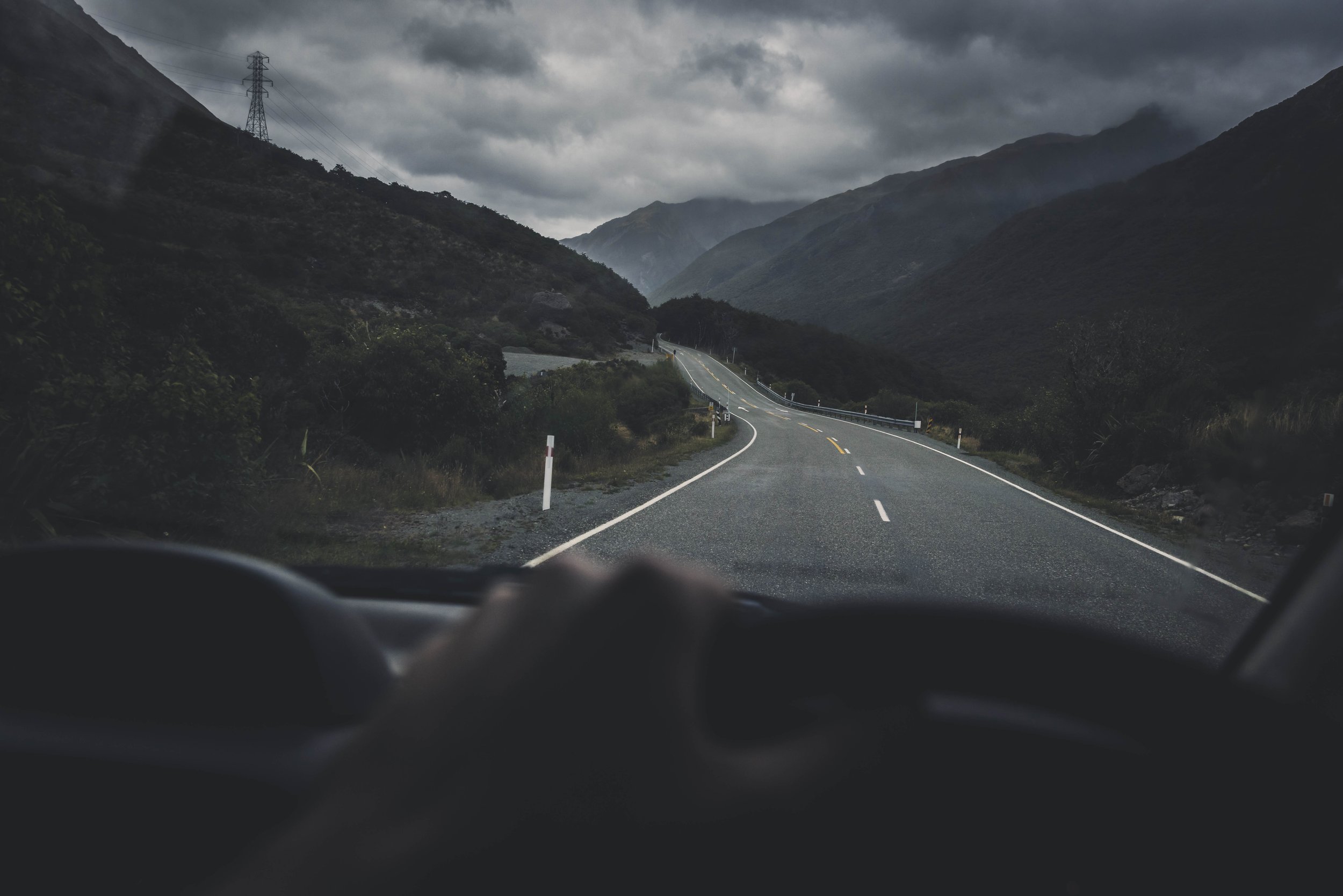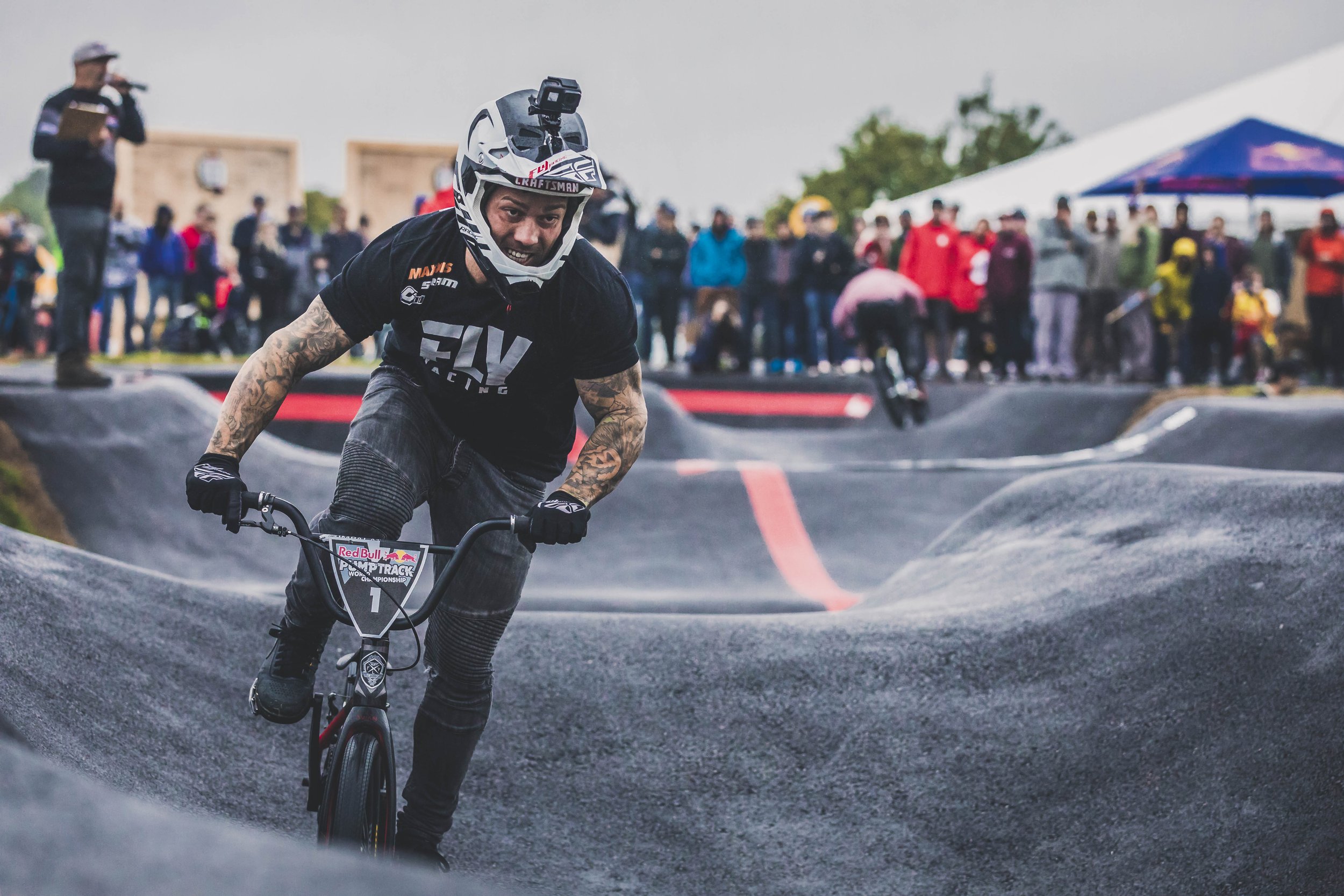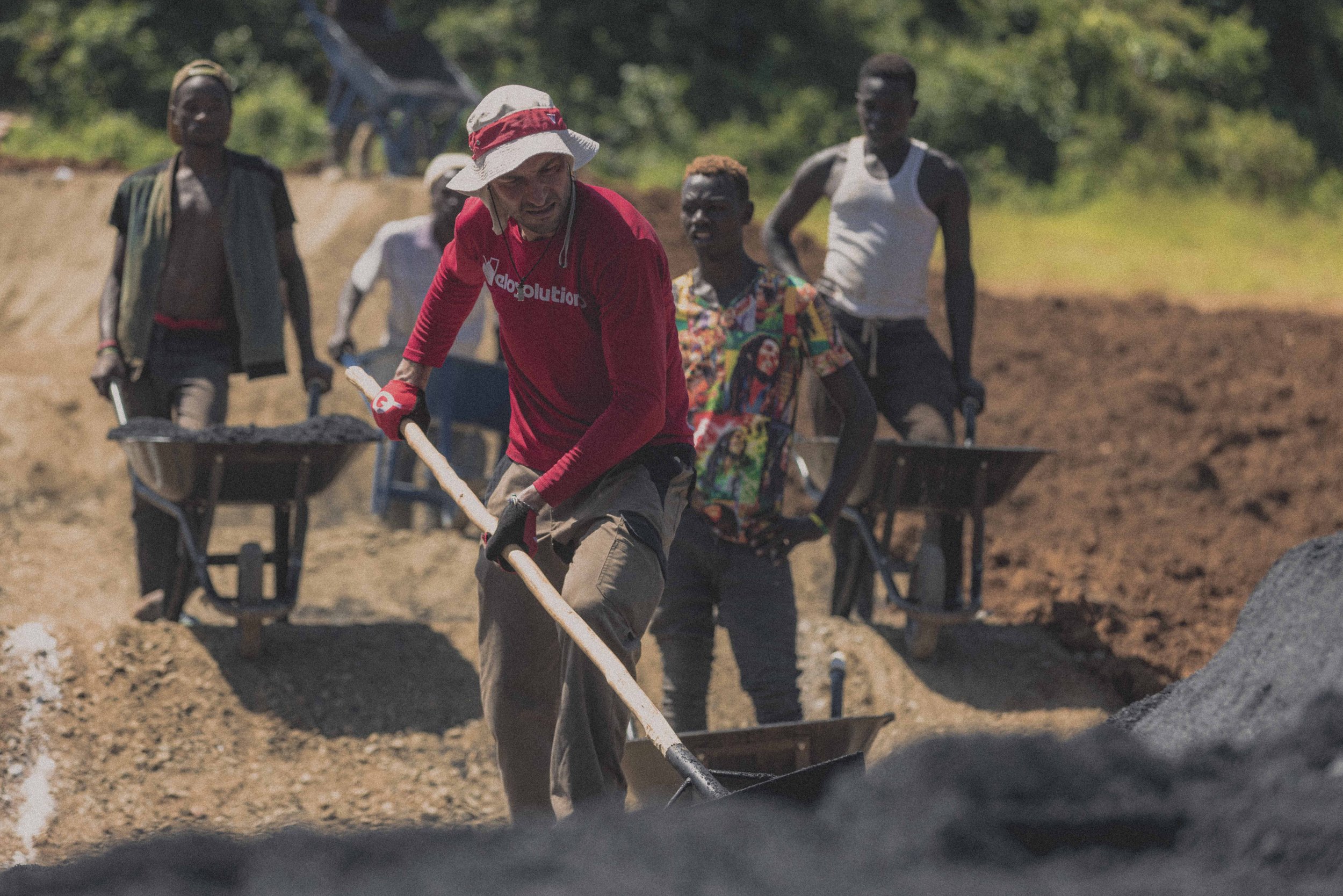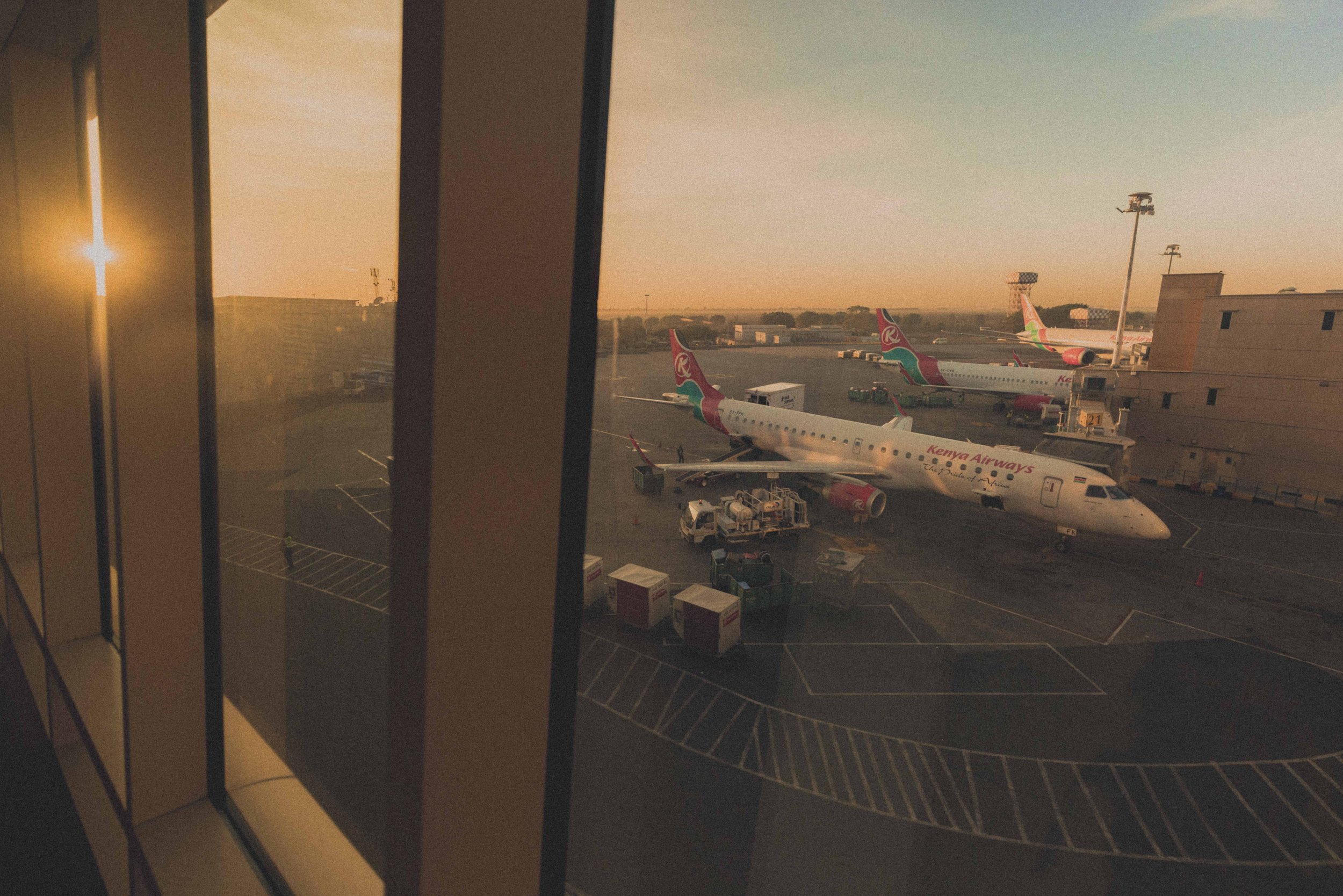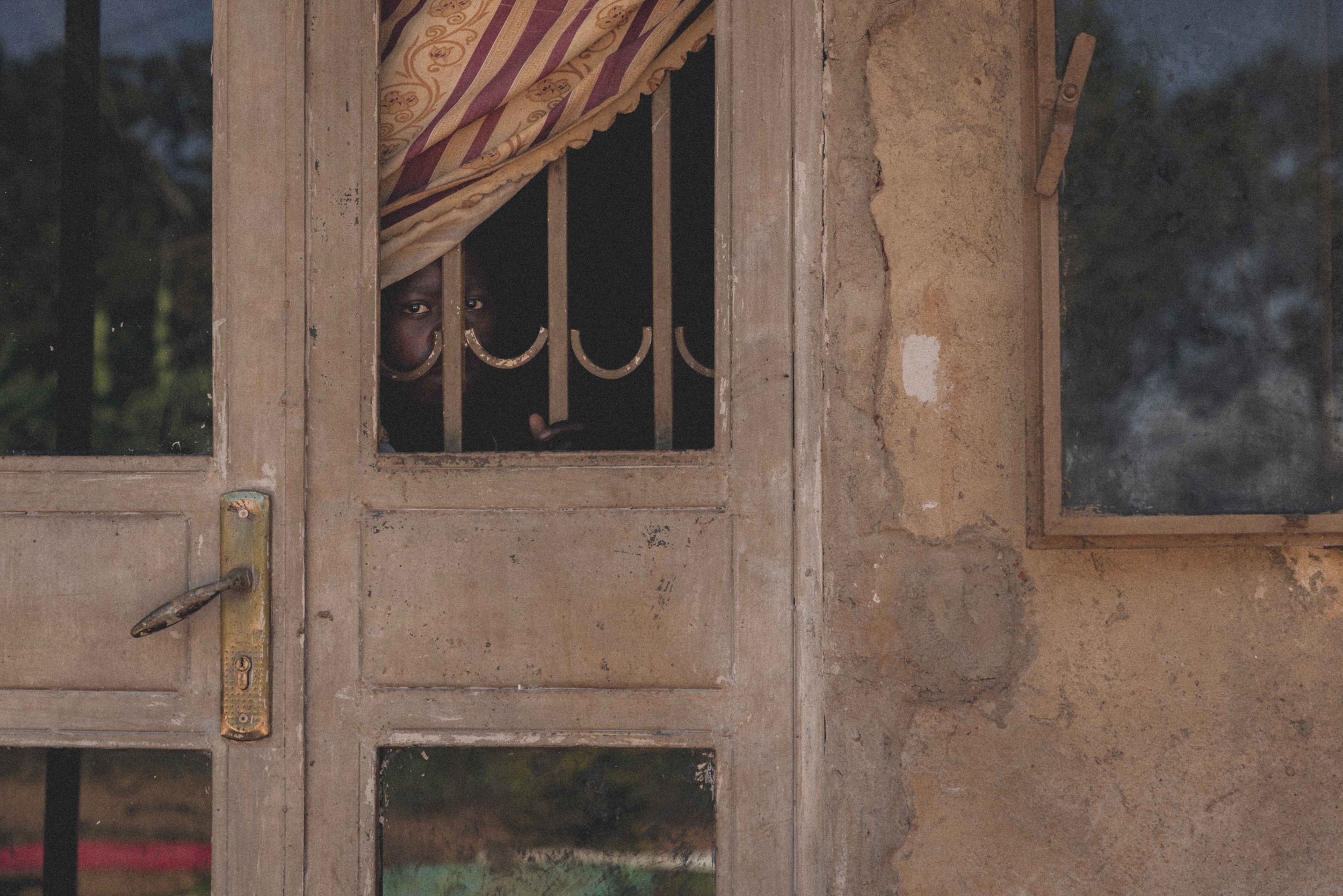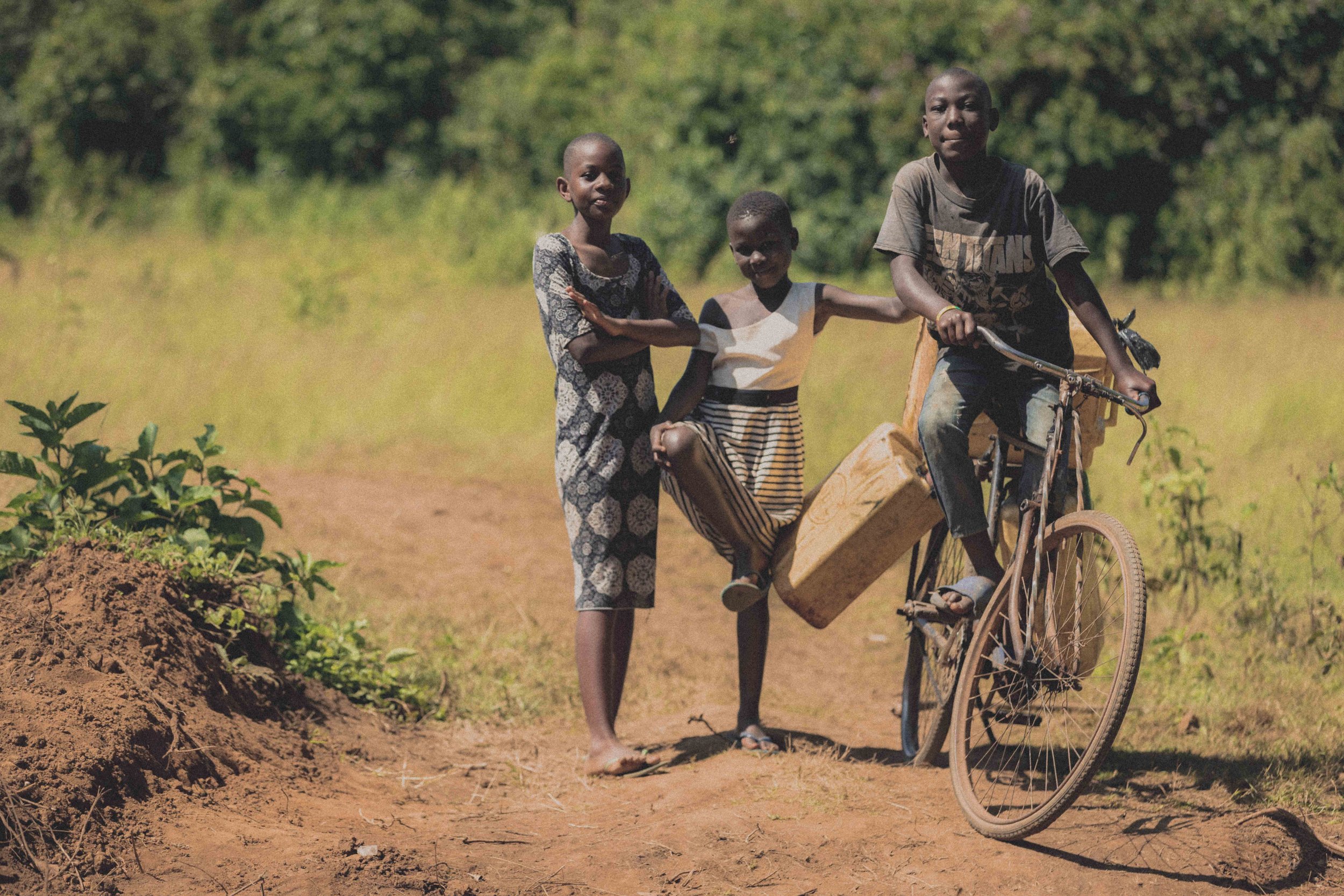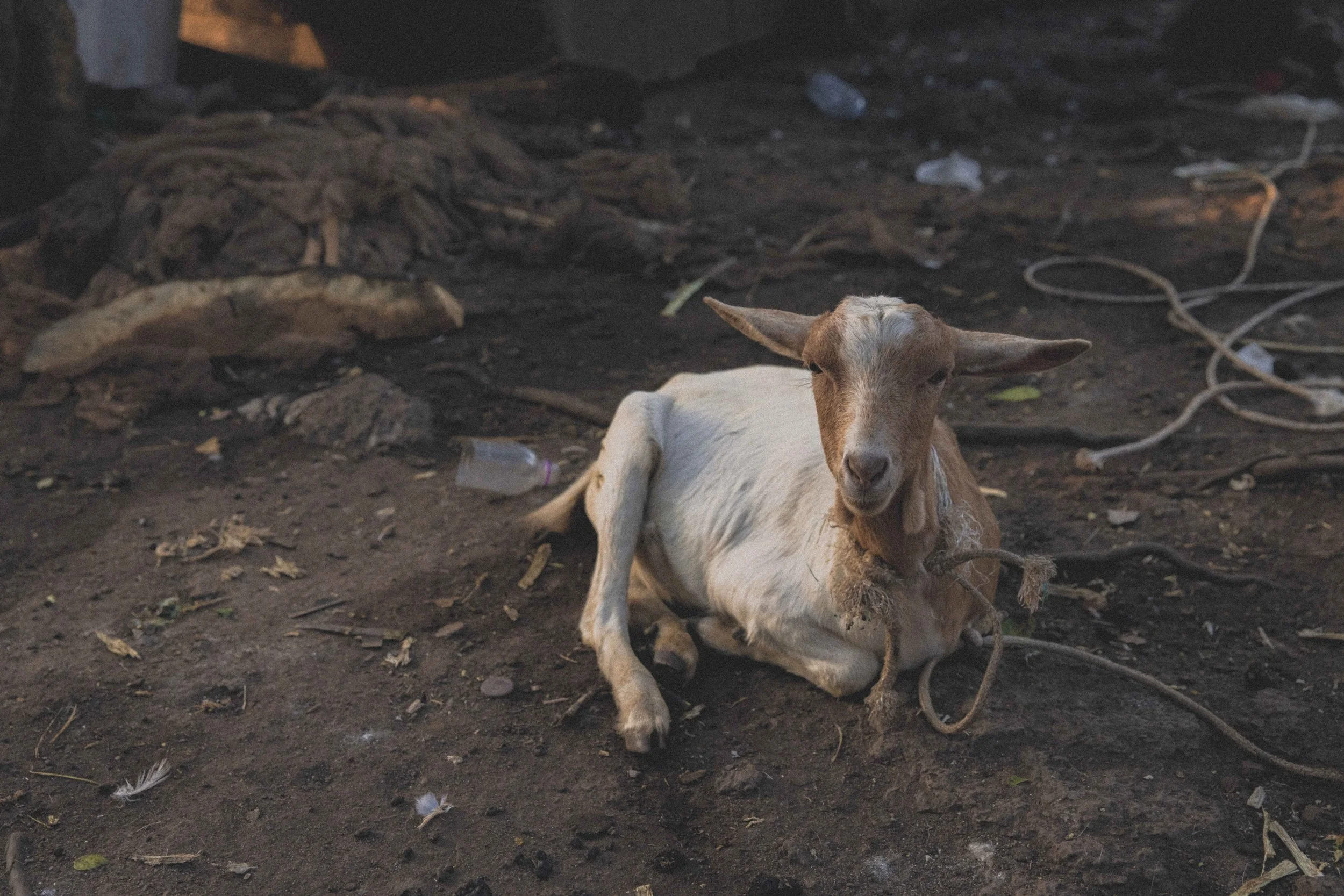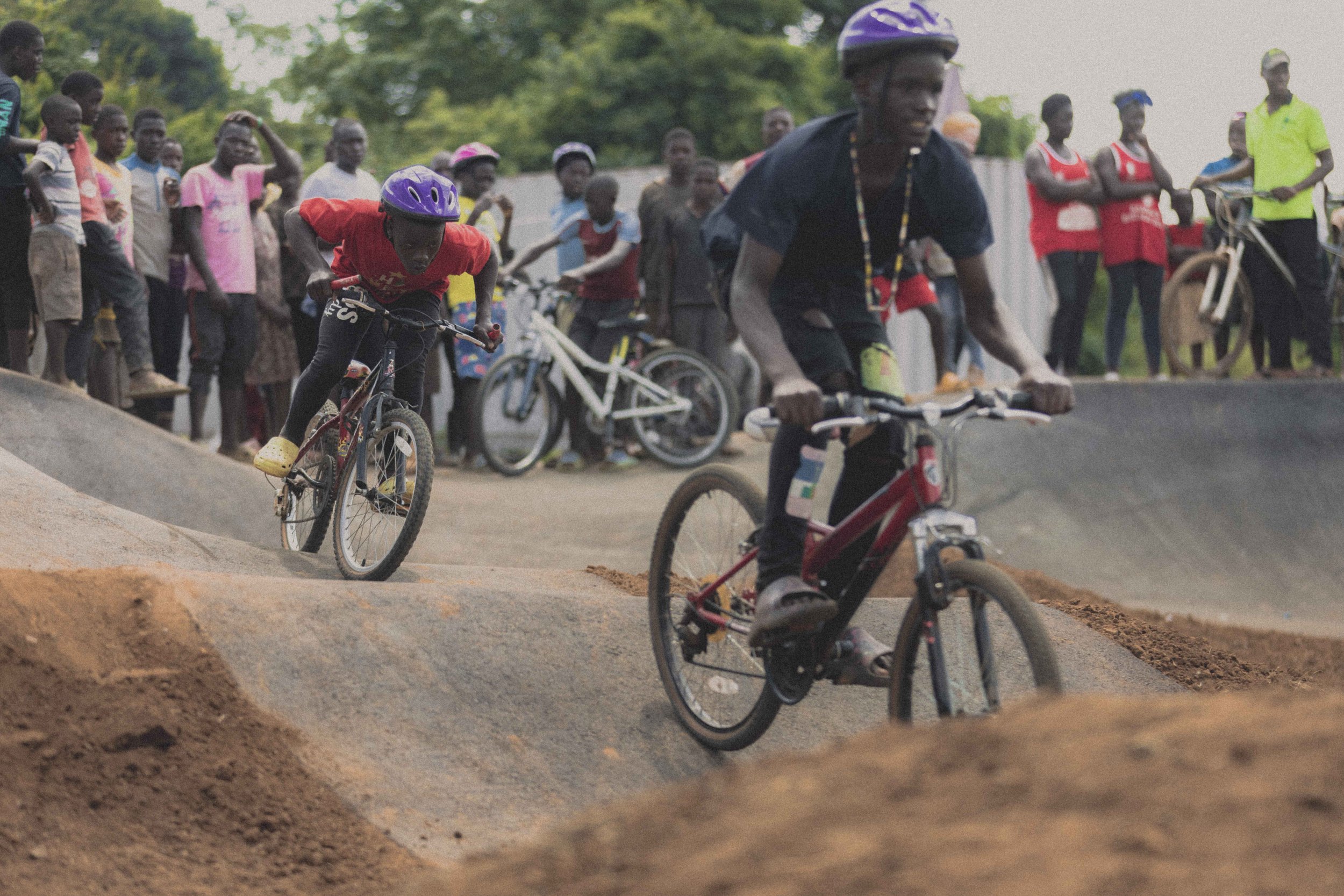Finding Home - Reflections on Uganda
Very little was ever certain during the early years of my career.
I've had many failures and painful lessons along the way, but if there's one thing I've learned, it's that life will hand you whatever experience you need at that moment. More often than not, those situations that appear hopeless and futile at the time later reveal themselves to have been necessary catalysts to greater wisdom and higher-hanging fruit.
Whenever faced with a difficult or daunting decision, I've always tried to keep this belief in mind. It's allowed me to step into the unknown, understanding that, even if things don't turn out how I'd like them to, I'll still be left with more than I set out with. I've found that life has a unique way of surprising us, and as much as we like to believe we have things figured out, the reality is very different, and sometimes we just need to take a back seat and let life take the wheel.
Putting this belief into practice throughout the early years of my career gave me a sense of security, like a compass guiding me through life's turmoils. It allowed me to not get too caught up with setbacks and instead focus on the long-term vision. There have been many ups and downs along the way, but seven years on, I can confidently say I have achieved everything I envisioned for myself when I set out.
Arriving where I am today is something I believed would be the answer to long-term happiness and peace of mind. Over the first few years, as I ticked off new destinations and exciting opportunities, things felt purposeful and in alignment. However, somewhere around the beginning of 2021, after half a decade of living the life I had always envisioned for myself, something began to feel like it was missing.
Over time, this feeling began to feel existential, and as it spiralled, so did my mental health. The sense of purpose that had kept me grounded and level-headed had disappeared, and I began to feel disconnected, lost and hopeless. Meanwhile, on the surface, things had never been better. My business was growing, and I was making more money than ever. In a material sense, I had never felt more secure. So why was I feeling so insecure within myself?
As I desperately searched for answers and familiarity in the things that used to work, nothing was hitting the spot. I was feeling simultaneously paralysed and restless. My body begged me to slow down. Meanwhile, my mind desperately sought refuge in distraction.
I'd never been a stranger to mental health, but this felt more intense and rawer than anything I had experienced before. As the year went on, I sank into the darkest and most hopeless places in my mind as I desperately tried to stay afloat in the real world. "I don't have time to slow down", I told myself, but as my body forced me to reluctantly hit the brakes, I had the stark realisation of how important staying busy and distracted had been for my mental health.
Money and material success had never motivated me in the early days, but something had changed. Where once I had lived ruthlessly by my soul's purpose, somewhere along the way, my priorities had shifted. For a long time, the work, and any success, although righteous, had been acting as a mask for issues that should have been addressed long ago, and now there was nowhere left to hide.
And I am by no means unique. Mental health diagnoses are rising, and rates of depression, anxiety, ADHD, and OCD are at an all-time high. Modern-day hustle culture, increasing pressures of society, and the unrealistic standards we're exposed to every day on social media are taking a toll on everybody's mental health as we try to keep up in a desperate race for more.
Meanwhile, on the contrary, mental health is becoming less stigmatised, and the topic is receiving more research than ever. In the Western World, technology is making our lives more and more effortless, and our quality of life is at an all-time high.
We have everything we could ever need and more.
So what's going on?
Introduction
The past two years have seen a lot of reflection and change as I've slowly relearned how to prioritise my well-being over what I considered to be success markers. After years of chasing external validation and praise, I had entirely lost the person I was when I started.
How I view the world has changed, as have my priorities, how I spend my time, and the type of work I immerse myself in. Where I used to make decisions based on what I thought made the most logical or financial sense, I'm instead reconnecting with my intuition and moving in a direction that aligns with my values and purpose. Something which, when I started out, was second nature, but as I've found, can be so easily forgotten once things speed up.
As I've sought to reconnect with myself and my purpose, I've felt more drawn towards projects and companies working to bring about positive change, whether by creating awareness for important issues or providing opportunities that didn't exist before.
The above translates well to a unique company I have worked with for quite some time now, Velosolutions. I first worked with Velosolutions on their Pump Track World Championships Series in 2018. Admittedly, I wasn't so familiar with the company at the time, and I was initially drawn to exciting racing and a trip to the US. Although I wasn't aligned with their purpose back then, something caught my attention, and as I got to know some of the faces behind the company, their open-minded and forward-thinking outlook kept me invested.
Velosolutions constructed its first concrete pump track in 2009, followed by the first asphalt in 2012. A decade on, they have 539 pump tracks worldwide in 50 countries and 6 continents, only missing Antarctica, although we can give them some grace on that for now.
Last year, they averaged 12 builds each month, a number that's only increasing each year. As more and more pump tracks are popping up around the globe, Velosolutions is doing its part to make action sports more accessible than ever, creating safe spaces that unite communities, instil passion, and promote healthy and active lifestyles.
In 2017, having spent nearly a decade witnessing first-hand the benefits of the pump track, they decided to take things one step further with the initiation of Pump for Peace - a charity focused on bringing pump tracks and sporting opportunities to the most underdeveloped regions of the world.
Seeing how pump tracks were uplifting communities in the developed world, they asked themselves how they could make these opportunities more widely available. They soon found themselves in Roma, Lesotho, for their first Pump for Peace project, and since they have constructed 13 more in the likes of Kenya, Rwanda, Israel, and most recently, Uganda.
Mid-way through last year, we began to discuss the concept of a project which would see me visit them on their latest build, document the process, and shine a light on their work. In true Velosolutions fashion, this quickly escalated, and soon enough, I was lining up flights ready to leave the following week.
Shortly afterwards, problems on the ground saw the entire build being axed, and that was that. We kept the project in the pipeline, but there was no real idea of when or where it might occur. That was until I received an email from Claudio last month, reading, "Can you come to Uganda on Saturday?"
Excitement, curiosity, and nerves arose. I'd travelled Europe, North & South America, Asia, and Australasia, yet somehow, Africa had always missed my radar. Truthfully, I was nervous. The media creates certain preconceptions about Africa, but I still had no idea what to expect.
Ultimately, I had around 48 hours between initial notice and stepping on the flight. A trip to Europe or even America would have been manageable, but being Uganda, the process wasn't so straightforward. It was a race to get Yellow Fever vaccinated, apply for visas, and get my ass over to Africa before I missed everything, and there was no guarantee whether or not things would work out.
Still, something about this project felt in alignment, and before I knew it, I was in line at Ugandan customs, hoping all had checked out during my rushed preparation.
Arrival
This would be my first experience with a developing nation, and I had no idea what to expect.
I hadn't slept on the overnight flight, and when I arrived at Nairobi airport, I was exhausted and could feel my mind trying to disassociate and distract me from the moment. My mind was foggy, but I was reminding myself to stay present and immerse myself in the experience.
I hadn't even made it to Uganda yet, and I wanted my bed. I wanted familiarity. I reminded myself that I wasn't on holiday. I wasn't here to seek out the same comforts as back home. I was here to document Africa's raw, honest truth.
As the sun rose, I looked out onto the tarmac as tractors loaded baggage onto the plane. A brief reminder of home and what would likely be the last for a while. On the short, one-hour flight to Entebbe, I considered trying to catch up on sleep, but truthfully, the adrenaline wouldn't let me switch off.
Arriving at Ugandan customs, I breathed a sigh of relief as my last-minute Visa and Yellow Fever certificates failed to raise any alarms. Less than 45 minutes after stepping off the plane, I took my first steps onto African soil. Or rather asphalt. The soil would follow shortly.
I was greeted by Ambrose, who insisted on carrying my bags and generally making himself as helpful as possible - something I would learn to be standard practice in Uganda. Ambrose would act as my guardian angel for the next few hours as we navigated the African hustle and made our way down to Kasanje.
From the jump, local life starkly contrasted with life back home, and the first notable difference was apparent on the road. For lack of a better term, it was a shit show. Traffic was hectic, and near misses were common, but drivers remained unphased as they navigated the free for all that is Ugandan road etiquette.
As we headed South through Kampala's outskirts, the asphalt roads soon became dirt, and the everyday scenes of Ugandan life continued to surprise me. Very little compares to what we're used to back home, and although we see these places on the TV, nothing really prepares you for when you first see them in the flesh.
To me, what the locals consider day-to-day life was entirely alien and initially, the experience was overwhelming. Something would catch my eye in every direction, and I desired only to be present as an observer, watching curiously as the show unfolded.
As we passed through different villages, we drove for an hour and a half and didn't see another white man. I, of course, knew I would be in the minority, but I wasn't prepared for the attention that would bring.
My presence was turning heads, and locals would stare as we passed. Initially, this put me on edge, but I soon learned that a smile and a wave would quickly break the tension more often than not. As my energy was reciprocated, I felt a deep connection with the onlookers, and I soon realised there had been no tension all along - only curiosity.
We eventually found ourselves on a stretch of road I can best compare to WW1 trenches. Ambrose explained that the road had been in this state for some time, and despite my concerns for the health of his car, he continued with complacency that confirmed how normal of an experience this was out there.
As the car bottomed out and scraped on the terrain, I cringed. Ambrose, not so much. Emerging on the other side, his car appeared to have weathered the storm, but it didn't take long for the ride to feel rough again. Not a word was said, but as we looked at each other, we both thought the same thing. Pulling over, our assumptions were confirmed. The trenches had proven too much for Ambrose's right-side tyre.
And to think we complain about potholes...
A short, slow trawl brought us to the nearest village. Ambrose pulled into a garage, and I stepped out of the car for the first time since we had left the airport. No longer on the move, the tension returned - not because I felt any threat but because I felt like an intruder.
I couldn't help comparing my life back home to life in the village, and the realisation of my privileges brought about shame. I'd expressed this to Ambrose earlier, and he had assured me that I needn't worry, but I couldn't shake the feeling. I chose to keep my camera hidden. Not because I was concerned for its safety but because to make it present felt like a shameless flaunt of wealth.
Back on the road, having lived off aeroplane meals for the last 24 hours, hunger cramps demanded attention. The usual menu was off the cards, and looking around, it occurred to me I had absolutely no idea how or where to acquire food. In my naivety, I had neglected to withdraw any cash, and as I assessed the roadside, none of the passing primitive structures looked like they would take card, let alone Apple Pay.
Further along, Ambrose pulled over and disappeared into, what I could only assume, was a store of some sort. As I waited, I observed my surroundings and noticed that the usual autopilot, often initiated amongst familiarity and comfort, had been replaced by an intense and curious presence.
I remember it like it was yesterday, the flies orbiting the nearby fruit stands, the litter as it drifted in the wind, and the old man who crept ever so slowly up the hill, walking stick supporting his wobbling stance.
There was none of the hustle and bustle of home. There were no smartphones and very few distractions. People didn't appear rushed and seemed more present in their day-to-day actions. From a brief observation, it was evident that for them, life was happening today. Not tomorrow.
I didn't know what to expect on Ambrose's return, but soon enough, he did, presenting me with a bag of what he explained was chapati. An egg/flour mix forming a pancake-like substance, which, it turns out, is a staple dish in Uganda. Grateful, I offered to pay him, but he kindly declined.
Shortly afterwards, we finally arrived in the village of Ziba, where the foundations of our story lie. I had only been here a few hours, and already Uganda was proving to be an eye-opening experience. The early observations had provided quite the wake-up call, as my conditioning continued to be challenged, and I was reminded of truths so easily forgotten back home.
I didn't know what the following days would bring, but something told me we were only just getting started.
Community
We entered Ziba on foot, and I got my first close-up of life in a developed nation as we passed buildings, which, at first glance, appeared uninhabited. Poverty and lack of access to basic amenities were evident in the makeshift homes and infrastructure, starkly contrasting the developed world.
To begin taking photos from the go felt like I was treating life there as an attraction, and instead, I remained present as I acclimatised myself to what would be my home for the next few days, paying attention to the teachings of the moment.
Much like on the road, our presence attracted a lot of curious eyes. It was hard to gauge the vibe, but as we smiled, our smiles were reciprocated. Smiles progressed into conversations, sometimes in broken English and sometimes with fluency.
On the first day, we met Josephine at home with her children. As we waved from the road, she smiled and gestured us over. We found her preparing eggplants for cooking which would take place over the clay fire outside. She was smiley and keen to chat as she welcomed us into her home.
The children enjoyed playing with the camera, and it was evident that the technology was entirely alien to them. Seeing how much they enjoyed it gave me a lot of joy, but I couldn't help feeling a sense of guilt as I realised how much I take it for granted.
Before we left, Josephine gave us two avocados as a parting gift. Having seen how bare and basic her home was, it felt wrong to accept her gesture, but not to accept it felt equally disrespectful. We thanked her and offered her some money in return, but she kindly declined our offer.
This would be a recurring theme as we spent more time in Uganda, and witnessing the generosity of Ziba's locals was a blessing, but it also highlighted flaws in my own character, which required attention. It forced me to reflect on the times I have fallen to greed in hopes of finding security in materialism - yet, despite having so few possessions, Ziba's people appeared far more secure.
A few days into our trip, we were introduced to Mr Mujabi - the village's mayor. It was evident that he was well-respected, and being associated with him made many of the village's people more open and comfortable with us, making communication far easier. As he guided us through Ziba, many of the children took an interest in us, offering us a grand tour with ecstatic energy, which soon became contagious.
They pulled us along, eager to show us their homes and livelihood. They introduced us to their family, livestock, and homegrown vegetables - all simple pleasures that clearly meant the world. As beautiful as the moment was, each corner turned was another reminder of our contrasting realities, and nothing hit harder than our first trip to the water pump - the village's only source of running water.
Each day, we would witness hundreds of children, and adults, making their way down to the pump, water jugs clad to their homemade bikes. Each jug would hold twenty litres, and you would often see five or six attached to a bike, adding up to over a hundred kilograms of water at total capacity. The journey to and from the water pump might be made two or three times a day in a considerable effort to attain the most basic human needs.
Photographing the workings of the water pump didn't sit well with me, but I had to remind myself why I was there. Fortunately, most people in Ziba received the camera well as they posed and pulled faces - eager to introduce themselves, engage in conversation, and discover what brought us to Uganda.
Many spoke excellent English, but even with those who didn't, despite the language barrier, something as little as a smile would initiate a connectedness far more profound than anything words could portray.
Often, the felt oneness between ourselves and another human being can be compromised once confronted with a contrasting culture, set of beliefs, or even social status. Unfortunately, that’s just human nature - yet this was seldom the case in Ziba, and nothing highlighted that quite like the relationship I formed with Muyanja.
I met Muyanja at the pump track early in the week with his two sisters as they made their way to the water pump. Muyanja was 11 and, along with his younger sister, Dembe, didn't speak English. Fortunately, his older sister Betty spoke fluently, so she handled the translations as we discussed their lives in Ziba and aspirations for the future.
We chatted for over an hour before parting ways, and for the remainder of the week, Muyanja would visit the pump track daily. The language barrier prevented us from exchanging many words, but as we spent more time together, I could sense the connection growing, and I soon came to look forward to his visits.
Muyanja found a deep curiosity in my phone and camera, so whenever I wasn't using one or the other, I'd let him disappear with it, sometimes for hours on end, before returning, with a camera roll full of hundreds, sometimes thousands of images and videos.
The storage quickly reached its limits, and although many of the images were blurry, out of focus, and blatantly accidental, I couldn't bring myself to delete them. Instead, I invested in more iCloud storage and kept Muyanja's work as a memento of my new friend - and a note to myself that photography is rarely remembered for its technical aspects but rather the story behind it.
Initially, I was nervous about visiting Africa, and most of these nerves arose from preconceptions deeply engrained from a lifetime of conditioning. I was afraid of getting ill and of having my equipment stolen. I was nervous about poverty and how ruthlessly my character would be tested in a raw and unforgiving environment often associated with so much negativity.
I'd never considered myself attached to my material possessions, but the concept of a week in Africa, a world away from my usual comforts, showed me how dependent I was. I pondered how I'd cope with the experience, but I knew deep down this was one of those experiences that, although uncomfortable, would undoubtedly carry a deeper purpose.
As I spent more time in Uganda, surrounded by the positivity of Ziba's people, many of my concerns back home began to feel trivial. I was a world away from familiarity, yet I felt an underlying contentment as my ego relaxed and I settled into the experience.
Away from the fast-paced reality of the developed world, which focuses so heavily on the future, life in Ziba was very different - the locals appeared to be much more invested in the here and now.
Ego and greed appeared redundant, and there was little, if any, concept of social status - everybody was equal and for each other. As an outsider, the people of Ziba appeared to have much less, yet, paradoxically, they had so much more to give.
Away from the Western world, the community of Ziba had found another form of wealth and security and appeared far more content despite their perceived struggles.
As I compared my life back home to that of life in Ziba, I questioned who really does have more.
Kasanje Bike Park
Constructing a pump track in a developing nation is no small feat.
The local organisation often handles much of the administrative work before Pump for Peace arrives on the site. Without local involvement, they wouldn't be able to do what they do, and without the community's support, this project would have never come to fruition.
The passion for cycling of Velosolutions and the wider cycling industry ultimately enables Pump for Peace to achieve its goals. While the collaboration between Pump for Peace and Sam Mutton Musizi Joy Foundation was fortuitous, their values and ambitions aligned perfectly.
Sam manages the cycling side of his charity and has been travelling between Uganda and the UK for over a decade. The charity aims to create strong roots within the community, and Sam saw cycling as the perfect opportunity to achieve this goal while making the sport more widely available.
Sam is conscious of the stigma surrounding "white saviorism" and has spent his time in Uganda learning how to work effectively and sensitively with Ugandans. He recognises that Uganda is ultimately their country, not his, and wants to create something the locals can enjoy long after his time there.
Having spent time learning from Ugandans, Sam discovered that recreational spaces were scarce in the country, prompting him to pursue his passion for combining sports and youth work. His vision was to create a safe haven where people of all ages could gather, improve their skills, and unwind.
Having managed to source a 100-acre patch of land just a stone's throw from Ziba, Sam was given a chance to bring his vision to life. Alongside his team of six Ugandan staff, they've been slowly working away over the last two years bringing Kasanje Bike Park to fruition.
Sam couldn't believe it when he learned he would be collaborating with Pump for Peace & Rotwild, and after a lengthy 18-month process, the time had finally arrived.
Pump for Peace is no stranger to projects in Africa, but this one took things to the next level. It was the first time Claudio had brought the Swiss team along, and they were in for a shock. Unlike in Switzerland, where everything is on time and the equipment is new, this project presented an entirely new challenge.
Constructing a pump track is a meticulous process, and Pump for Peace is very particular about the preparation of the site. Arriving in Uganda, things were as expected - not as expected - so the original plans were abandoned, and improvisation became the order of the day.
The Velosolutions team's expertise in building pump tracks is undeniable, but the success of this particular project owes much to the community's involvement. Witnessing Sam's team and the local volunteers come together for the build was genuinely inspiring. Even though Sam's team was experienced in track building, this was a new challenge for them, and for many of the local workers, it was their first time seeing asphalt, let alone building a pump track out of it.
Their dedication and passion for the project were commendable, and without their hard work, cooperation, and support, this project would not have been possible. Pump for Peace provided guidance and managed most of the construction elements, but the local team's improvisation and adaptability ultimately kept the fire going.
During construction, hundreds of children would pass by the site each day on their way to the water pump, stopping curiously to observe the progress. Their interest in the project was apparent, but it remained to be seen if it would translate into a newfound passion for cycling.
Aware that cycling was seen primarily as a poor man's method of transportation in Uganda rather than a recreational activity, Sam understood that raising awareness for the Kasanje Bike Park project would be challenging. As the opening day drew near, we could only wait to see what kind of turnout the project would attract.
The day finally arrived, and what we witnessed was beyond our wildest dreams. Hundreds of children and their parents flocked to the pump track, eager to experience the joy riding a bike brings. For many of these kids, it was their first time on a bike, but their enthusiasm was infectious. The limited number of donated bikes meant that the changeover was a frenzy, but the kids wasted no time, and their efficiency in getting back out on the track was comparable to that of an F1 pit stop.
The pride and joy on Mr Mujabi's face, who had helped to generate a lot of interest in the project, was apparent. Even he couldn't resist going for a spin. Parents expressed gratitude for the new bike park and the safe space it offered for their kids to have fun. For these kids, who each day face challenges beyond their years, it was a chance to reconnect with their youth and escape.
Having witnessed the turnout, the interest in cycling is undeniable, and the growth potential is enormous. In 2025, the first-ever road world championships will take place in Rwanda, and with the sport's growing awareness, it's an exciting time to be involved with cycling in Uganda. Sam and Musizi Joy Foundation are determined to be a significant part of this growth.
The project's impact on Ugandan cycling is immeasurable, and there's no denying the incredible opportunities the bike park will open for the sport. The bike park is still a work in progress, with plenty of work and investment required to realise its full potential, but already the future looks bright.
In the latter half of 2023, they plan to organise a mountain bike racing series, offering impressive prizes for the participating riders. They hope to provide a safer and more legitimate alternative to the dangerous and potentially corrupt races that many guys in Uganda risk their lives for minimal rewards.
The collaboration between the Kasanje Bike Park and Pump for Peace had its ups and downs, but to see it all come together was a dream come true. Sam couldn't overstate the gravity of the project, and he believes it's the most significant investment in Ugandan cycling so far. The future holds no bounds, with plans to host the mountain bike championships for 2023 and many more opportunities on the horizon.
The Kasanje Bike Park is more than just a recreational space. It's a symbol of hope for the community, a place where children and adults can come together to experience the thrill of cycling and all that it has to offer.
The impact of this project will be felt for years to come, inspiring a new generation of cyclists and opening doors to a brighter future.
Reflections
As the deadline for this story drew near, I desperately searched my soul for the right words to summarise my time in Uganda.
The longer I sat with it, the harder this became, and as the deadline passed, I faced a difficult decision. I knew I needed to submit something, but I didn't want to compromise the quality of my work.
It wasn't until I stepped away from it that I began to understand I had been chasing the wrong things all along. My initial inspiration had been clouded by my ego and my desire for external validation through my writing. I had become self-centred, focused on how my work would be received rather than the true meaning and value of the story.
My time in Uganda reminded me that true fulfilment comes from looking outward, connecting with others and serving those in need. The people of Ziba taught me the power of generosity, positivity, and appreciation for the simple things in life. They had shown me that contentment can be found in the present moment without constantly striving for more or comparing oneself to others.
I realised how much of my work had become a form of escapism, allowing me to evade the deeper questions about my purpose and the true essence of life. I had been using it as a replacement for what I thought was missing within myself, seeking validation and success as a measure of my self-worth.
Returning home, I found myself slipping back into old habits. The comforts of modern life and the pressure to keep up with societal expectations quickly pulled me back into a cycle of discontent and distraction. But my experience in Uganda left a lasting impression on me, reminding me there is more to life than chasing success and external validation.
With renewed perspective, I started afresh. I poured my heart and soul into my writing as I shared my vulnerabilities, realisations, and struggles. Letting go of my ego allowed me to focus on the true meaning behind my experience, the beauty of the people in Ziba, their generosity, and their positive outlook on life.
Whether it was well-received or not didn't matter anymore. I had found purpose and meaning in authentically sharing my story, regardless of how it was received. Uganda had reminded me that true fulfilment comes from within, from living in alignment with my values and being present in the moment. It taught me to appreciate the small joys in life and be grateful for my opportunities rather than constantly striving for more. It had been a wake-up call to reevaluate my priorities, let go of societal expectations, and focus on what truly matters.
As I wrote about my experiences in Uganda, I realised that my story reflected not only the people and places I encountered but also my personal journey towards self-awareness and growth. Through this process, I gained a deeper understanding of the true meaning of my journey and was grateful for the opportunity to have been forever influenced and inspired by the people of Ziba.
Thank you to Velosolutions & Pump for Peace for commissioning this story.

